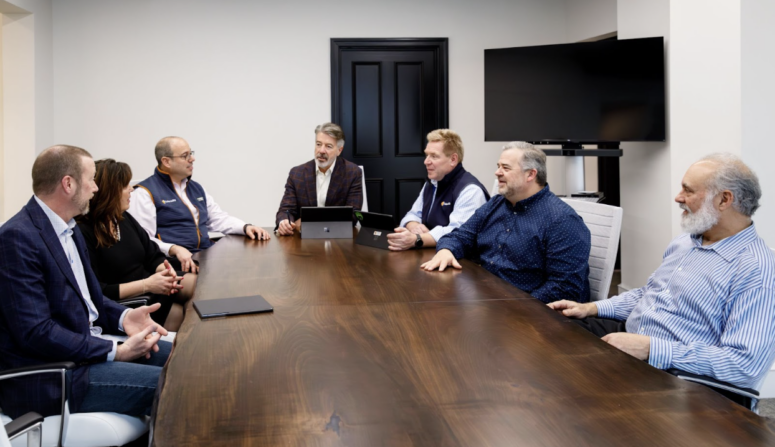Most people want a job done well, quickly, and/or cheaply, but it takes work to have all three. If you are lucky, some get two of those for one job. With regulatory demands, limited resources, and fast-moving technology, investment data is hard to manage, more notably in the back office, but the priority is speed over everything else. So, how does one do this?
Read more on how we can take something as traditional as regulatory reporting and risk data and turn it into a more streamlined process with portfolio management systems, risk analytics, and accounting modernization.
Accounting Modernization

Accounting modernization can do numbers on your current total net asset value. Investment and asset managers note how they can make their accounting book of record and modernize it through streamlined processes.
Everything that modern regulatory reporting can do for an Investment Book of Record (IBOR):
- Reduce key person risk and maintenance of customized tools
- Stabilize operations by enabling straight-through processing
- Ensure accessibility of detailed historical records
- Enable processing of more complex derivative types
- More easily enable changes from regulation such as LIBOR retirement
- Give greater transparency to asset managers, valuation, and performance drivers

Investment Book of Record (IBOR) as a Performance Measurement
Asset managers or other investment managers often look into solving deficiencies with workarounds or loopholes to make things easier. More often than not, these workarounds cause more problems than solutions. To avoid this, companies need to rely on experts like Meradia for maintenance and updating common programs like Access and Excel since these are the most used software to look at things like total net asset value, cash positions, generating daily net asset data, performance returns, client reporting, performance returns, and risk data more efficiently.
Investment Books of Records (IBORs) are great for mitigating risk by fully processing complex assets. Sometimes, when people are responsible for constructing and upholding crucial processes, there can be significant risk if anything goes awry. To work with a responsible investment management operations company, you can expect that they can offer custodial services, like enhancing the oversight and processing of cash positions, timely data, and more. For instance, their custodial services offerings encompass life cycle management, automatic settlement of cash flows, and the capability to enable straight-through processing. These services can result in increased efficiency, enhanced transparency, and reduced risk for the firm. By availing ourselves of these options, we can ensure that we have a robust and reliable system in place, even in the face of personnel turnover.

Common Multiple Systems Issues
One of the simplest workarounds for this common issue is to create a generic unrealized and realized entry under a dummy CUSIP to capture the daily variation market price and margin for these products. Not only does this limit the ability to see detailed transaction information, it may also lead to a gradual deviation between actual and recorded realized and unrealized gains and losses. Due to price or FX values, small differences in daily valuations can accumulate over time. You need operational efficiency across the board so these issues do not occur.
These may seem like small changes, but when combined, they can make a big difference in how products are leveraged. Asset managers do a great job of verifying what is gained or lost for each trade and know what to do afterward. This process is tedious, but with the right team handling your Investment Book of Record (IBOR), you can be confident that it has accurate and timely data.
Collateral Management in the Asset Management Industry

In Meradia’s latest article about Accounting Book of Record, we detail how to maximizing performance through proper collateral management of cash balances. Meradia details how the right platform can enable higher-level automation and reduce risk and headcount. This level of upstream automation through the front office and middle office functions is very difficult to achieve with manual workarounds in the back office that disrupt the flow of straight-through processing. For example, during quarterly resets for credit default swaps, individual payments on an accounting book and receipts may have difficulty netting as the individual SWIFT and typical vendor references cannot be applied to a lump sum entry on an automated basis.
Beyond not receiving the full benefit, the back office may find themselves more difficult as these products scale upstream of their workarounds, compounding current pain points. This is especially problematic in the face of a large-scale change driven by external factors such as LIBOR retirement, which may necessitate larger rolled trades to exit outdated rates. The volume can become unsustainable with the current workarounds, leading to impactful processing errors. Many firms find themselves in a more difficult position with this amount of volume, which can sometimes affect the firm’s performance book of record PBOR and the entire investment data management lifecycle.
Operational Efficiency
Front, middle and back office functions and workarounds can be difficult to unwind. A lot of accounting systems and reporting programs already have a feature that can be installed on newer versions. Still, several leading vendors and operations teams can only do well if they implement all of these factors together with the latest version of a real-time system and overall digital transformation in capital markets. Enabling this functionality not only eliminates the need for homegrown applications where asset managers take over control of the assets outside of a typical accounting and Investment Book of Record system, but they can also enhance the investment decisions and process beyond the current operating model, providing the broader firm better access to information, and enable better oversight while reducing risk.
HOW MERADIA CAN HELP WITH Collateral and Derivatives challenges

When firms are faced with vendor selection, functionality, and other investment operational transformation decisions, it can be quite overwhelming and very time-consuming. Meradia is here to help streamline and make investment operations transformation decision-making so much easier. Our consulting teams are not only versed in multiple accounting systems and alternative investment technology solutions, but we can also offer a tailored approach to transform order management systems to determine cash positions, generate daily net assets, understand your book of record and asset classes, and more.
Various Investment Functions are Our Specialty
Meradia knows the challenges that companies can face in accounting systems and can provide the necessary solutions and approaches when needed. Are you having challenges providing additional services to your clients or adding more complex assets? Meradia can provide a current state analyst. Meradia can also assist in selecting and implementing the right solution for you to address your client’s needs.
 info@meradia.com
info@meradia.com

